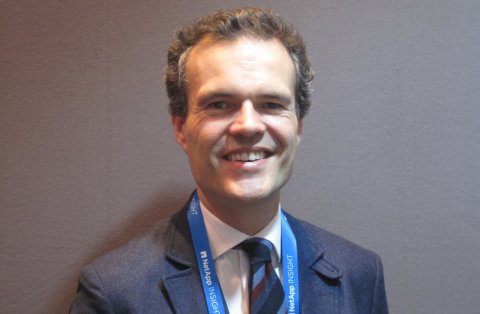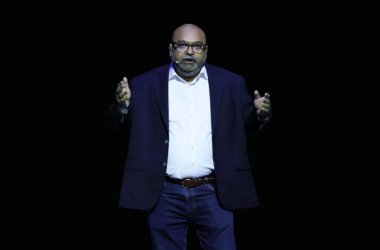
Data services company NetApp aims to be the second-placed firm in market share in the Middle East, a senior official has said.
Currently placed third, NetApp is enjoying fast-paced growth, according to Marc Montiel, NetApp’s vice president for enterprise focus countries, which includes the Middle East.
Key markets for NetApp, and the ones for which its market share is typically calculated, are all-flash arrays and enterprise storage.
“For us, we’re still on double-digit growth in the [Middle East] region. This year again it will be double-digit growth,” said Montiel, who is based in Paris but who visits the UAE three to four times a year.
“This region for us is an investment region. So we’ve increased the size of our team in Saudi and Dubai.
“We are around 10 percent market share. We are number three on the market. Our objective is to reinforce our market share. For me, the objective in all our markets is to be at least in the number two position.”
NetApp has previously said that its market share in the Middle East is lower than in some other parts of the world because it entered the region in earnest later than competitors such as Dell EMC, but is now fully committed.
In the Middle East, NetApp has an office in Dubai, which is also responsible for projects in Abu Dhabi, and an office in Riyadh.
NetApp has a dedicated team dealing with organisations in the oil and gas sector, while other important areas include telecommunications and the public sector.
Speaking on the sidelines of the NetApp Insight London conference, Montiel added that the company was gaining market share in Saudi Arabia and the UAE after it “closed some big opportunities”.
The company’s central offering is its data fabric, an architecture that embraces on-premises storage and multiple clouds.
It has partnerships with the main hyperscalers, including Amazon Web Services, Microsoft Azure and Google Cloud.
In many markets, the increasing use of artificial intelligence (AI) is helping to spur demand for NetApp’s services.
“In the Middle East, AI is driven by the public sector – for CCTV and projects related to smart cities. We see the states investing a lot on this,” said Montiel, adding that these were large, multi-year projects.
“We continue to embrace the digital transformation around AI, which is a strong driver in the region.
“We see a strong public sector in the region regarding the digital transformation. They’re sometimes ahead of the private sector.”
While companies in the Middle East have tended to be slower than their counterparts in some other parts of the world to migrate to the cloud, Montiel said there was now greater interest.
This, he said, is spurred in part by moves by the hyperscalers, such as Microsoft, to open data centres in the region. Microsoft launched “cloud regions” in Dubai and Abu Dhabi in 2019.
“For Saudi they want a private cloud or local cloud providers for reasons of sovereignty … With Microsoft investing in cloud services, customers will be more willing,” said Montiel.
“They are looking at [migrating to the cloud], which was not the case a few years ago … If you know the cloud provider is investing in your region, that’s important.”
Each time a hyperscaler opens a data centre in a region it has “a huge impact on the business,” Montiel said.





